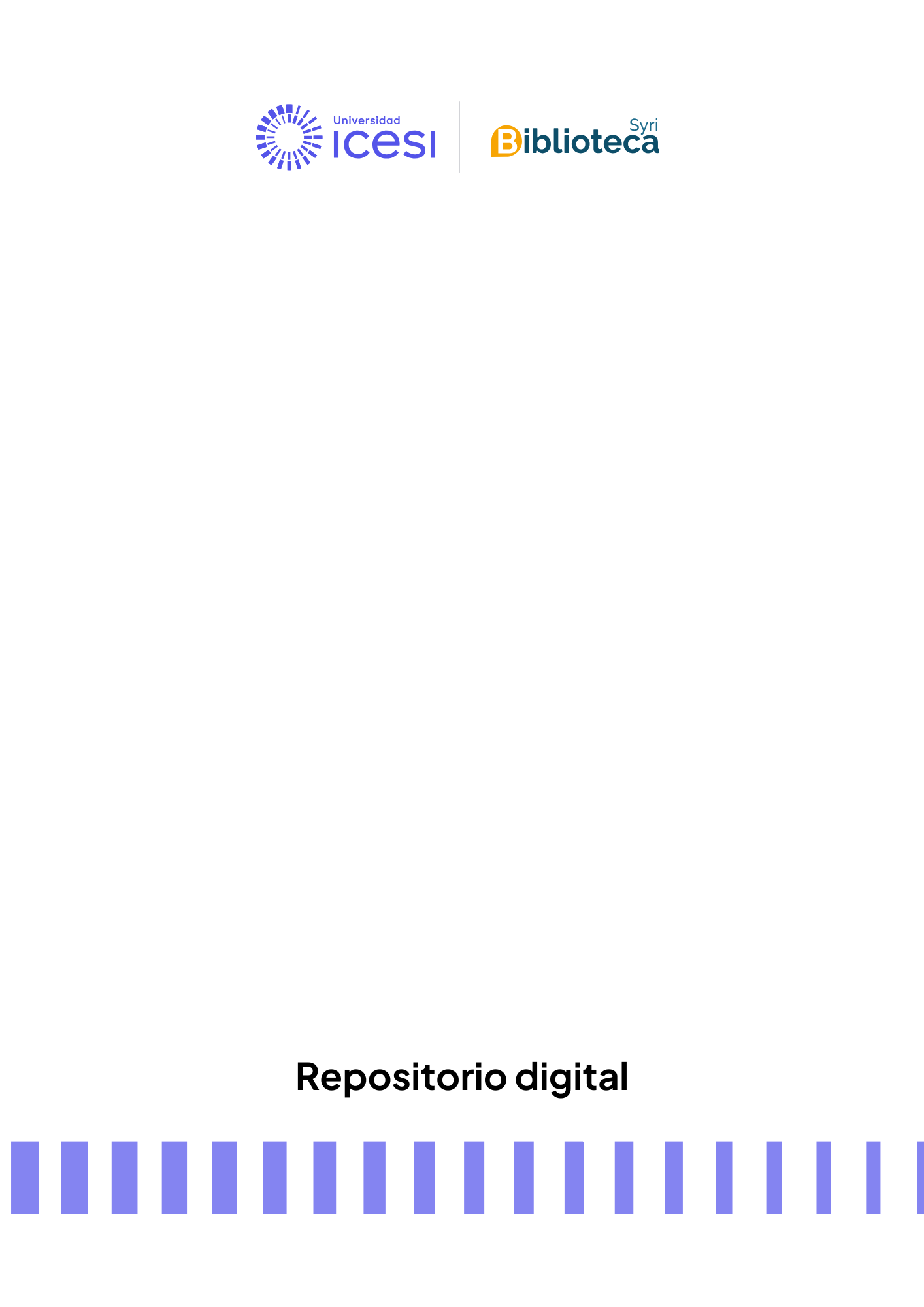CS No. 29
URI permanente para esta colecciónhttp://hdl.handle.net/10906/85254
Examinar
Envíos recientes
Ítem Activismo académico en Cuba: tradición, práctica y testimonio(Universidad Icesi, 2019-09-01) Capote Cruz, ZaidaUn recorrido somero por la historia del feminismo académico o intelectual (o mejor, por la práctica feminista de académicas e intelectuales) en Cuba sirve como pretexto para reflexionar sobre la práctica pública del feminismo desde la academia y las instituciones culturales y estimula el testimonio de un momento específico y de la experiencia individual acerca de cómo se han llevado a cabo algunas discusiones en torno al lugar de la mujer en la sociedad cubana actual.Ítem Activist-Research in Black: An Interdisciplinary, Transnational Roundtable(Universidad Icesi, 2019-09-01) Ramos Pereira, AndiaraIn this panel, a group of Black scholars gathers to discuss political, intellectual, and practical meanings of activist research in the Americas. Talking across the Atlantic, the authors generate responses to questions related to the following topics: knowledge and epistemological orientations, theory, positionality and power, and the alternatives in which socially-engaged research and change are offered. Calling on ruminations from research and personal experience, this article considers how Blackness augments the processes by which scholar activism has been created and understood by the authors. These comments seek to highlight not only the precarity in which such work is defined, but the opportunities that stand to be gained in understanding racial, sexual, and gendered elements of historical and contemporary social life through interdisciplinary and transnational perspectives.Ítem Sin disociar la investigación de la lucha: feminismos militantes en la academia latinoamericana y caribeña(Universidad Icesi, 2019-09-01) Carosio, AlbaUna versión preliminar de este texto fue publicada en Carosio, Alba (abril, 2017). Somos las mismas. Academia y militancia feminista en nuestro sur. Trabajo presentado en XXXV International Congress of the Latin American Studies Association, Lima, Perú. Recuperado de https://albacarosio.wordpress.com/2018/04/29/somos-las-mismas-academia-y-militancia-feminista-en-nuestro-sur/Ítem Una aproximación sociológica crítica activista al estudio de salud y migración: el caso ecuatoriano(Universidad Icesi, 2019-09-01) Villalón, RobertaMigratory processes test the physical, mental, and emotional well-being of migrants and their relatives that stay in their place of origin. This article presents an abridged analysis of an interdisciplinary and applied research developed between 2015 and 2019 about Ecuadorian migrants in the United States and Spain, relatives of migrants who stayed in Ecuador, and return migrants. By paying attention to health and migration histories, family dynamics, care practices, transnational intersections of social structures, and individual and collective agency, this study identifies health processes and conceptualizes psycho-sociocultural mechanisms that migrants and their relatives use to cope with migration- related health challenges. It discusses how the application of a critical, feminist, and activist theoretical-practical sociological approach provides a transformative vision to the traditional study of health and migration, which is effective to prevent and take care of health problems resulting from migration.Ítem Resistance and Knowledge Production: Social Movements as Producers of Theory and Praxis(Universidad Icesi, 2019-09-01) Schroering, CaitlinDrawing on fieldwork with Brazil’s Movimento dos Atingidos por Barragens (MAB), the author argues that MAB’s struggle is not just around those affected by dam projects; rather it is a part of a larger “alter-globalization” project. The author posits that MAB is not simply a social movement actor but a producer of knowledge that articulates theory and praxis resisting the larger hegemonic imperialist system. In this paper the following questions are explored: What can academia learn from social movements? How do scholars produce research that does not reinforce power hierarchies? And how do we create collaborative research?Ítem O conhecimento situado e a pesquisa-ação como metodologias feministas e decoloniais: um estudo bibliométrico(Universidad Icesi, 2019-09-01) Selister Gomes, MarianaA Sociologia, desde sua emergência no século XIX, foi aproximada das Ciências Naturais, na busca por sua cientificidade. Para isto, a objetividade e a neutralidade tornaram-se critérios fundamentais. A despeito dessa tradição, a Teoria Feminista tem argumentado em defesa de um posicionamento científico crítico, engajado e transparente. Neste cenário, emergem as propostas metodológicas em torno do Conhecimento Situado e da Pesquisa-ação. O presente artigo tem como objetivos: (1) descrever o Conhecimento Situado e a Pesquisa-ação; (2) analisar o quanto e como estas perspectivas estão sendo utilizadas nos Estudos de Gênero da América Latina; (3) fomentar o uso dessas metodologias. Para estes fins, utilizamos o Método de Pesquisa Bibliométrica. As conclusões demonstram um ínfimo número de artigos utilizando essas metodologias, ressaltando a necessidade de fortalecer e difundir este debate.Ítem Reflections on Activist Scholarship in the Trump-Bolsonaro Era: Dual Hemisphere Hate Transforms Intellectual Praxis into Political Imperative(Universidad Icesi, 2019-09-01) Shayne, Julie; Manfredi, JessicaIn this paper we reflect on the importance of activist scholarship given the frightening global shift to the right, focusing our discussion on Brazil and the U.S. We start by explaining our points of departure as they shape our individual and shared analysis. Next, we recap our first activist scholarship project, the book Taking Risks: Feminist Activism and Research in the Americas, and the definition of activist scholarship used throughout it and thus in this paper. Next, we further expand on the circumstances in the U.S. under Trump and Brazil under Bolsonaro which lead us to claim that this period brings a new urgency to feminist activist scholarship. We close by looking toward a future where the electorates in the northern and southern hemispheres have voted out both Trump and Bolsonaro and activist scholarship is once again a tool of pro-action not reaction and survival.

